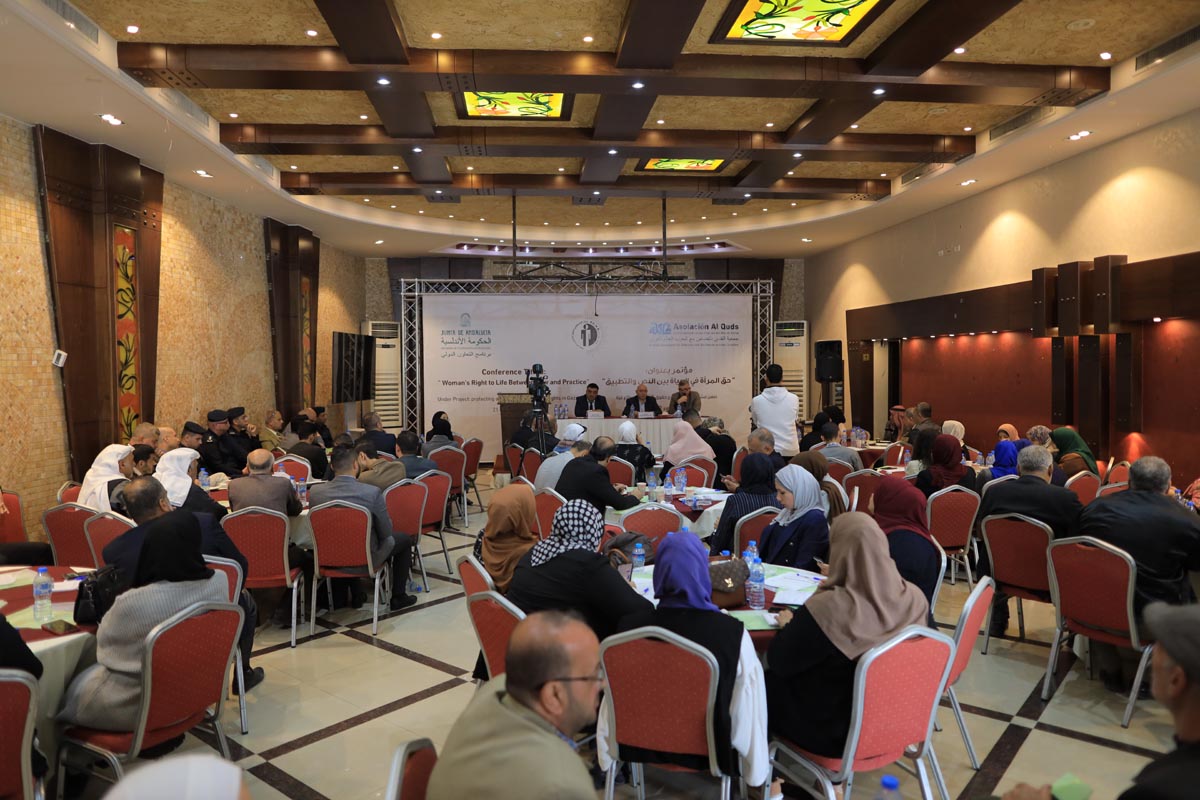
Ref: 36/2022
Date: 22 November 2022
On Monday, 21 November 2022, the Palestinian Center for Human Rights (PCHR) organized a conference, titled as “Woman’s Right to Life Between Law and Practice”, where Judges, prosecuting attorneys, and representatives from the police and the Palestinian Bar Association and Civil Society Organizations (CSOs) participated. PCHR regards this conference as an importance step towards protecting woman’s right to life in coordination with Al Quds Association for Solidarity with the peoples of the Arab World and the Andalusian Government “International Cooperation Program”.
Mona Shawa, Head of PCHR’s Woman Rights Unit, inaugurated the conference and indicated that it coincided with the upcoming 16 Days of Activism against Gender-Based Violence Campaign Against Women and Girls, which is an international campaign between 25 November to 10 December aiming at raising awareness about violence to call for prevention and elimination of violence against women and girls.
The first session was moderated by Mrs. Nadia Abu Nahla, Member of PCHR’s Board of Directors. During the session, Aya Al-Wakeel, PCHR’s legal researcher, presented a factsheet on “Killings of Women in Gaza Strip”, indicating that murder of women in the Palestinian society threatens the social fabric. She addressed the problems that prevent elimination of women’s murders in the Gaza Strip, including lack of legislations that protect women from violence, especially domestic violence, and shortcomings in the applicable legislations, including the Criminal Procedures Law and the Penal Reconciliation Law, in addition to criminal justice bodies’ use of alternative mechanisms to settle disputes, such as tribal reconciliation, in order to reduce the backlog of cases and accelerate issuance of decisions in such cases. However, practically tribal reconciliation has raised many problems regarding their effectiveness and the risks of discrimination against women. Al-Wakeel added that the hindering access to justice is a major reason for the killings of women and the effective prosecution of their perpetrators, and this is due to many factors, including the lack of information among victims about their rights and the procedures followed, as well as the fear of stigma and retaliation, and the existing discriminatory stereotypes among society members and criminal justice officials.
For his part, Mr. Amjad Al-Agha, General Director of Legal Affairs in the Legislative Council, said in his intervention on the legal framework regulating the killing of women in the Palestinian legislation, said that Palestine inherited a legal legacy of multiple references since the British Mandate, and many of its laws, including the Penal Code, have not yet been amended. Al-Agha highlighted national legal references relevant to the killing of women, including Article (32) of the 2003 Amended Basic Law, Articles (215) and (216) of 1936 Penal Code No. 74 and its amendments applied in the Gaza Strip, and the 2017 Penal Reconciliation Law. He added that the legal challenges and obstacles when protecting women from murders arise from the shortcomings in the legal framework and social heritage issues. He called for the need to amend the current Penal Code and exclude the legal articles that give the judicial authorities a broad discretionary power to diminish the culpability of the perpetrator of a murder against woman.
The second session was moderated by Mr. Ibrahim Sourani, a lawyer at PCHR’s Legal Unit. During the session, Counselor Salah Al-Dreiwi, Head of the Technical Office at the Public Prosecution, presented his paper on the legal procedures followed in complaints of women’s murder and the mechanisms to protect women threatened with death. Also, he talked about the Public Prosecution’s role in dealing with such cases, illustrating a statistic on murders, especially the murders of women. He added that crime rate against women in the Gaza Strip is much lower comparing to other societies, indicating Gaza Strip society’s awareness and respect for women’s rights. Al-Dreiwi stressed that murders and assaults against women prominently threaten the Palestinian social fabric, requiring everyone to stand up against these crimes and eliminate them by various legitimate means.
For his part, Counselor Ashraf Nasrallah, the Secretary General of the Supreme Judicial Council, presented a paper on the Palestinian judiciary’s position on cases of women’s murder cases. He stated that the Palestinian judiciary by reviewing the cases brought before it rules in accordance with the legal texts applicable to the incident without distinguishing between the parties on the basis of race, sex, or color. Nasrallah asserted that all is equal before the Palestinian judiciary, which considers the mitigating and aggravating factors of the crime, whether the criminal is a male of female. He emphasized that “honor” killings are one of the serious crimes committed by some members of the Palestinian society, using “honor” to get away with the punishment. However, if “honor” was proven to be behind the murder, the court reduces the sentence within its powers, while if it was not proven, the most severe penalties are imposed, mentioning some of the aggravating sentences issued by the judiciary in the Gaza Strip against murderers of women.
At the end of the conference, a broad discussion was opened, and the participants confirmed the following:
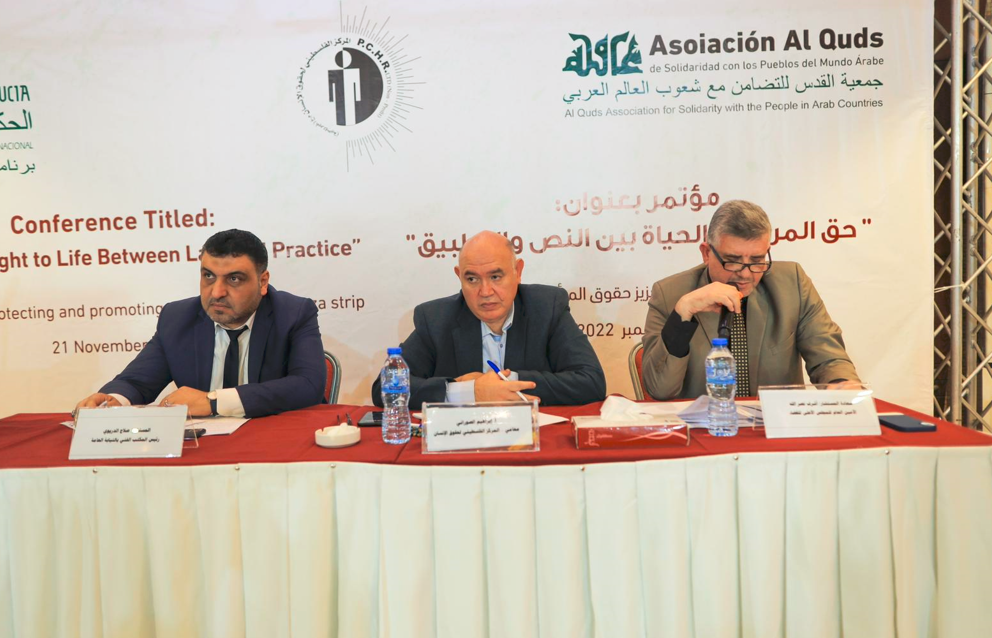
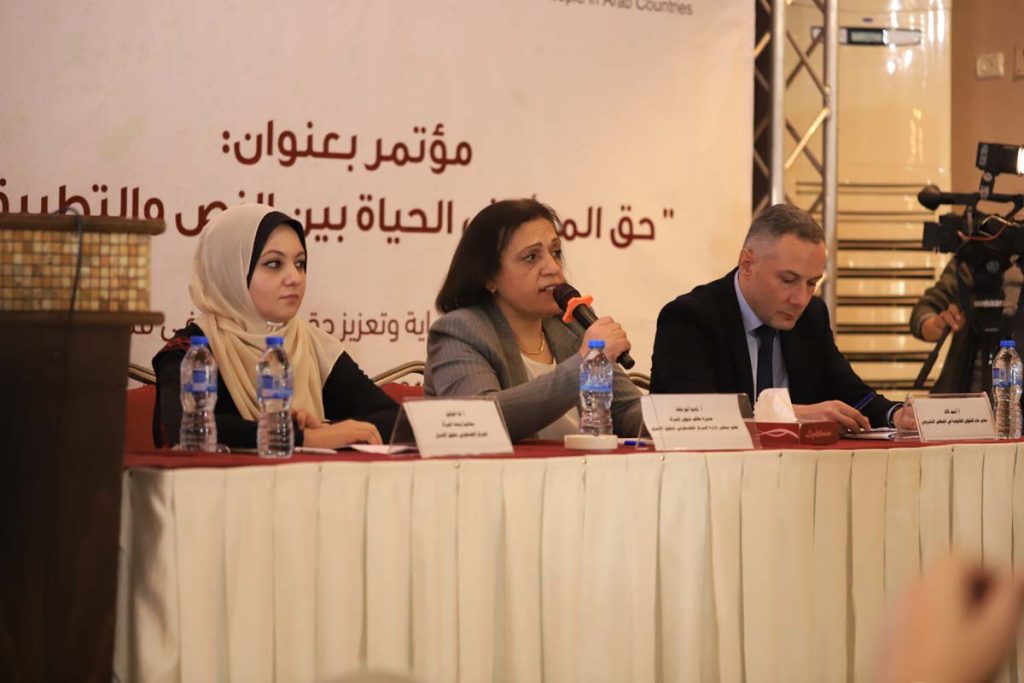
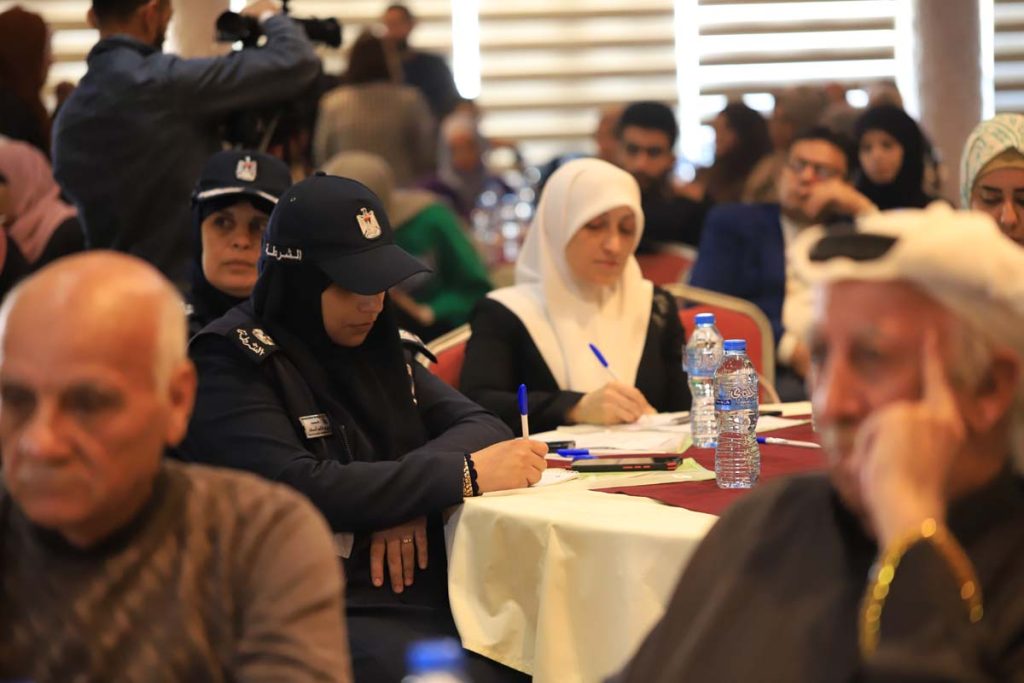
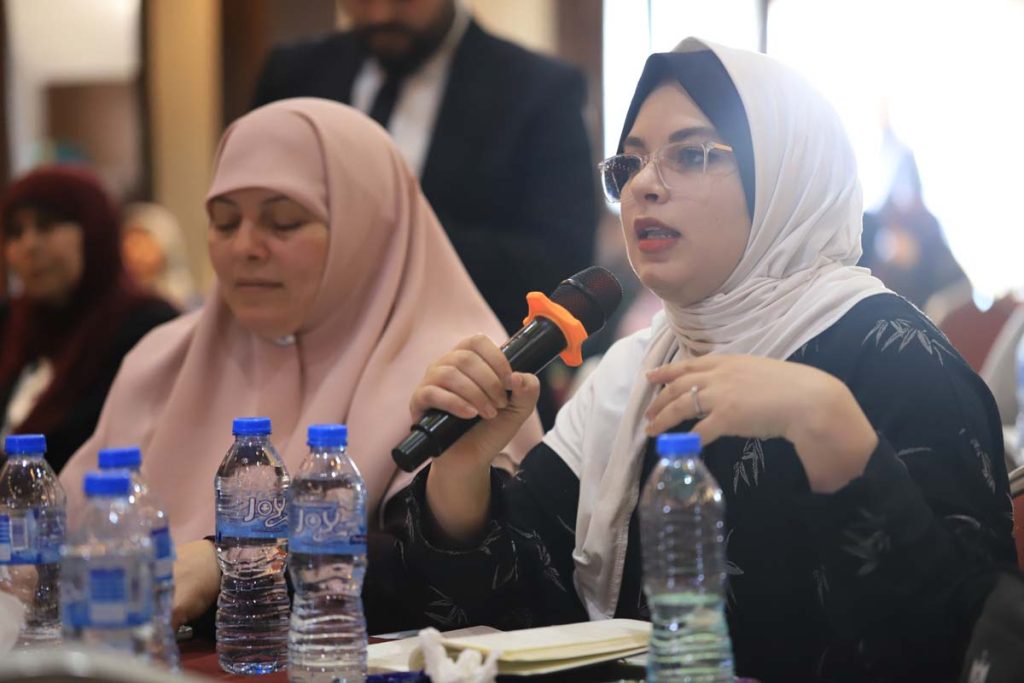
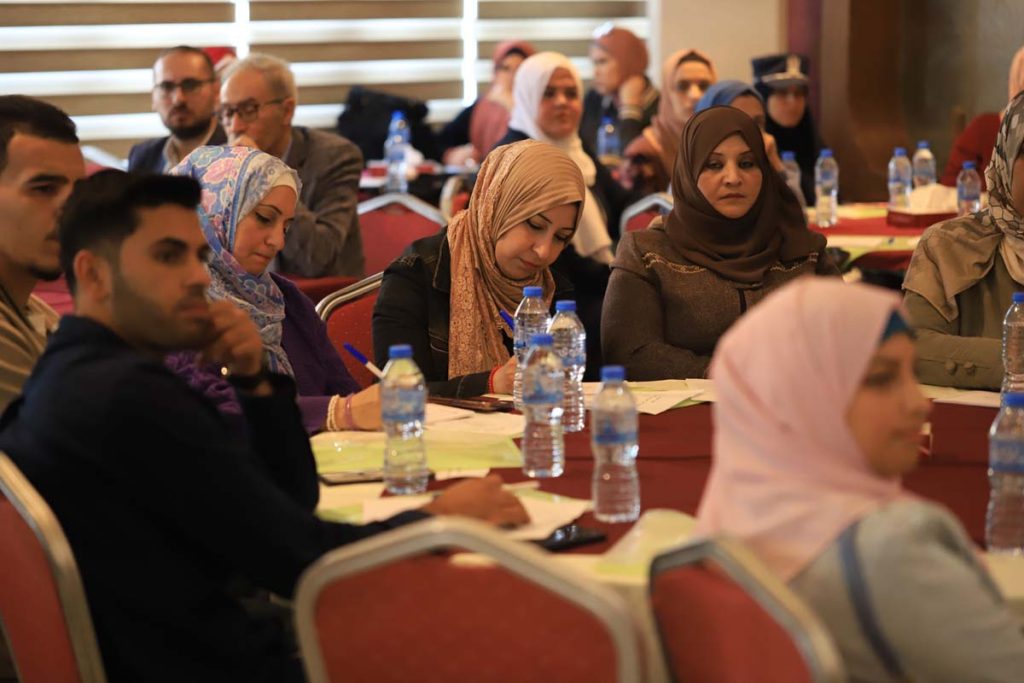
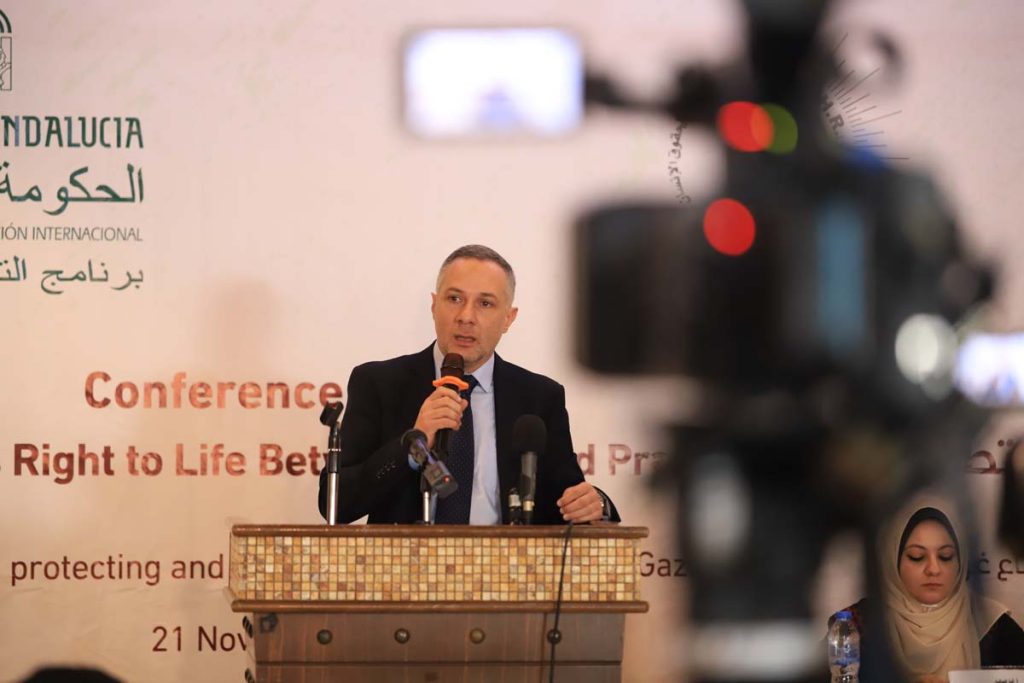
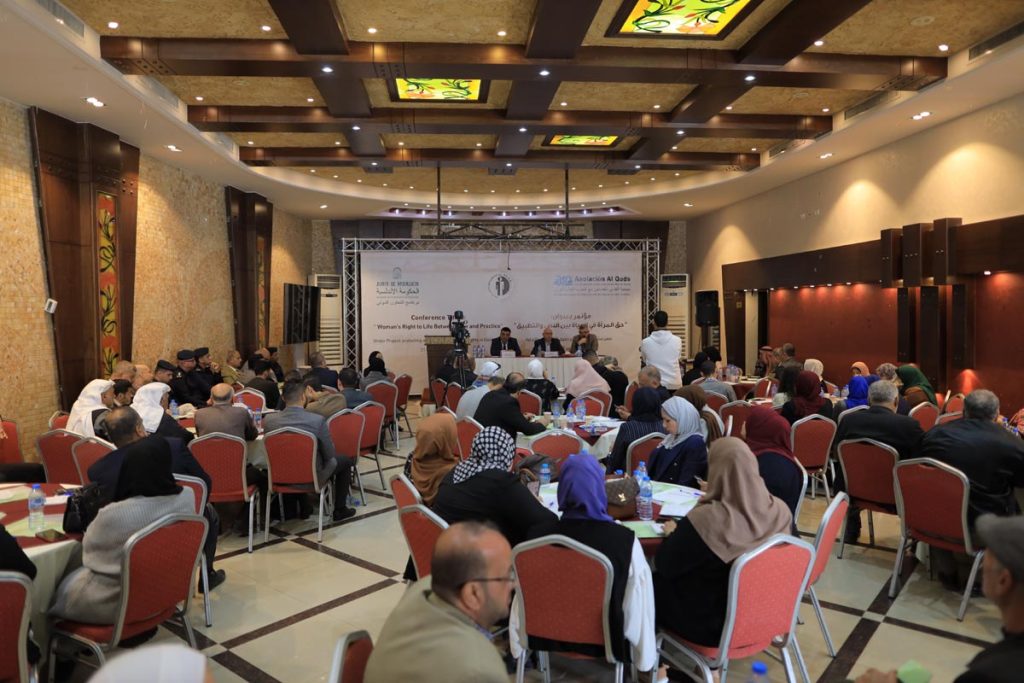
… [Trackback]
[…] Info on that Topic: pchrgaza.org/pchr-holds-conference-on-womans-right-to-life-between-law-and-practice/ […]
I am out here to speed this good news to the entire world on how I got help from Dr UYI a great lottery spell caster that will help you cast a lottery spell and give you the rightful numbers to win the lottery, I didn’t believe lottery spell at first but as life got harder i decided to give a try, I spend so much money on tickets just to make sure I win. until the day I met Dr UYI online, which so many people have talked good about, that he is very great when it comes to casting lottery spell, he told me the necessary things to do and behold it was like a magic, i won $220 Million Dollars Mega Million with the numbers Dr UYI gave to me. his a really trustful person worthy and reliable, i am sharing this to you who have been finding it so hard to win the lottery, Thanks you Dr UYI who helped me Contact him via email: drzukalottospelltemple@gmail.com OR WhatsApp on +17174154115